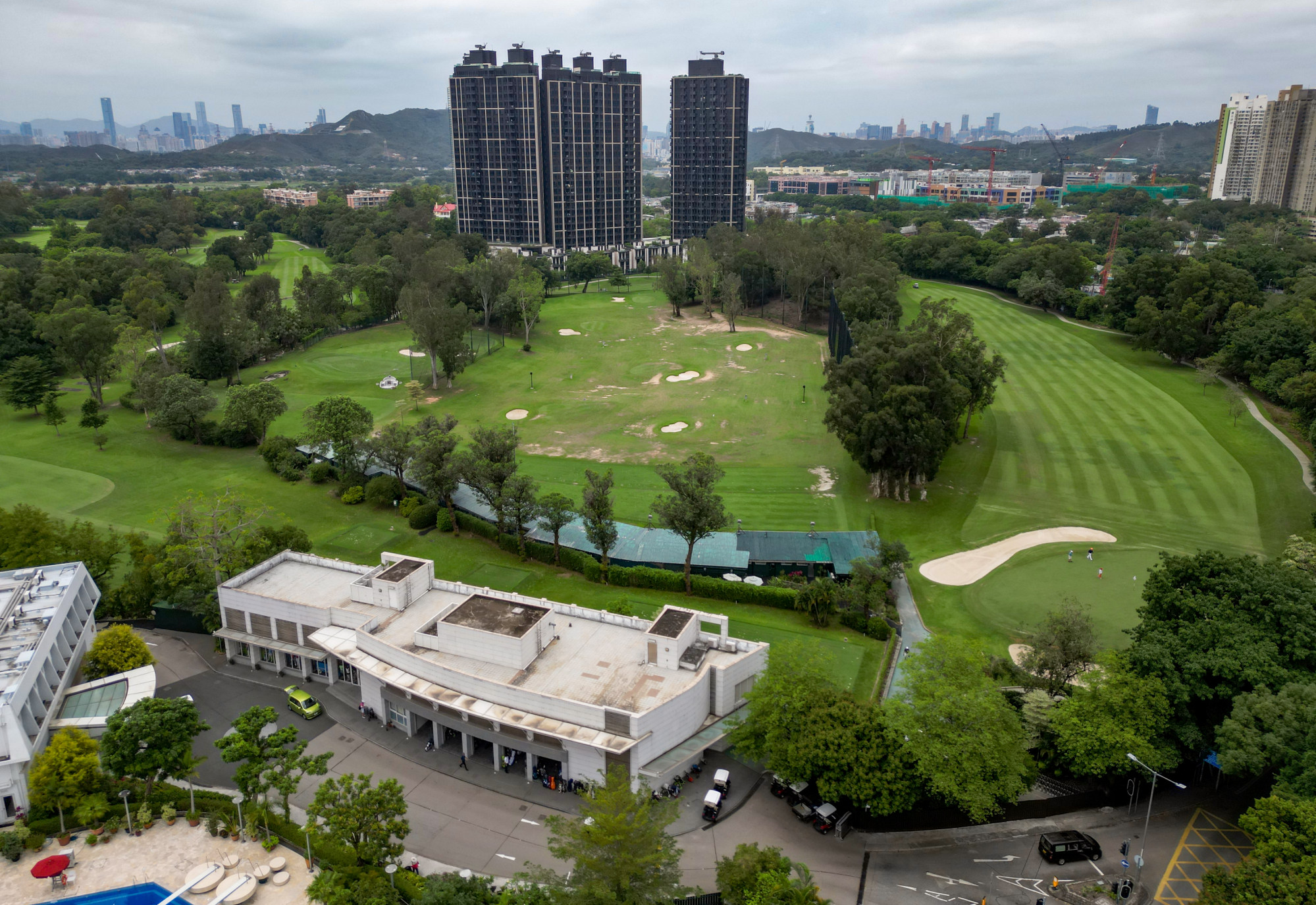
Advisory panel backs public housing development on Hong Kong’s oldest golf course, but raises concerns
- Advisory Council on Environment also raises concerns over discrepancies in ecological surveys carried out by government and Hong Kong Golf Club
- Proposed development will take up about 32 hectares, approximately one-fifth of course in Fanling, and create 12,000 public flats
Environmental advisers have backed a controversial public housing development at part of Hong Kong’s oldest golf course, but requested authorities revise the layout to preserve an area of woodland.
Despite giving the green light at a meeting on Wednesday, the Advisory Council on the Environment raised concerns over discrepancies between the findings of additional surveys on the development plans carried out by the government and the Hong Kong Golf Club.
“Among the eight additional pieces of information requested by the council, members have unanimously agreed that six of them have satisfied the requirements,” said Professor John Chai Yat-chiu, the council chairman. Fifteen of the council’s 20 members attended Wednesday’s meeting.

The council said it hoped to add a condition to the development, which involved changing the layout of the proposed housing estates to preserve a woodland of 0.39 hectares (0.94 acres) inside the residential area, where a total of 186 trees were found growing.
They included 19 incense trees, which are considered vulnerable internationally.
Authorities had suggested the area was only of low to medium ecological value.
The club expressed its regret over the council putting forward the environmental report, as its content – and additional information – failed to address comments from members.
It said the approval of a “substandard” report would create “a highly undesirable precedent” for efforts related to environmental assessment and bring about “irreversible ecological impact”.

The Development Bureau said it would not comment at the moment.
The redevelopment project still needs approval from the Town Planning Board and the Legislative Council.
The club, which leases 172 hectares of land in Fanling, on Tuesday submitted new survey results that showed more wildlife species had been identified in the development area.
The latest study found 323 moth species – 10 times more than the 28 identified by the government – including four species never seen before in the city.
In the meeting, council member Eric Ho King-fung said: “Those species would be gone for good once destroyed. The discrepancy is considerable.”
Members Daryl Ng Win-kong, of property developer Sino Group, and former deputy director of housing Ada Fung Yin-suen reiterated that authorities must strike a balance between development and conservation, in line with Chinese leader Xi Jinping’s emphasis on “ecological civilisation”.
The development will take up about 32 hectares (79 acres), approximately one-fifth of the course, and create 12,000 public flats by 2029.
Before the meeting, the Environmental Protection Department told council members, who are all professionals, they were “not required” to make a further decision on the ecological report, a move labelled unusual by a former council member and an environmentalist.

When the council last met in August it failed to produce an absolute majority of 10 votes in favour of the plan in the presence of 18 members.
It then concluded that it still needed eight pieces of additional information regarding the area’s biodiversity and hydrology.
But Chai said after Wednesday’s meeting the council had already discussed the topic thoroughly when he was asked about the government’s instruction for members not to vote on the project.
“Under the procedures, council members provide views on environmental impact assessment reports and the final decision on its approval rests with the director of environmental protection,” Chai said.
“Technically, we didn’t need to meet. The information could have been given to the director directly.
“But in this meeting, we did make at least two recommendations different from the project proponent’s assertions.”
The Conservancy Association, an NGO, said it expected the discussion about tree preservation would be revived in town planning meetings and urged the government to present the amended housing layout and conservation plans soon.
Deputy chairman of Legco’s housing panel Scott Leung Man-kwong said he was relieved to see the project go through, but hoped a deadline would be set for submitting the supplementary information to avoid delaying construction of the public housing.

